
Editor
The bank officer Bedrich Hroch is sent by the bank director to the zoo, which asked an allocation of one and half kg of gold for a gold tooth for a hippo. During the check up of the hippo's teeth Bedrich is swallowed by the hippo. The man does not die in the hippo's guts and he chats quite happily with his frightened wife Dása. Journalist Pip Karen, his friend is also present to the dialogue and he has immediately an idea how to use this special situation. He tells to the new minister Borovec and his opponent professor Fibinger that there is a hippo in the zoo which can speak. He also tells them how to use this situation for a political propaganda.

Editor
It is 1905. The police director gets Jindrich Legenda (Eduard Cupák) shadowed as, yet Legenda had served his sentence for a burglary, the jewels have not been found. Russian revolution encouraged also Czech workers to fight for their rights. Radical anarchists are followed by Legenda's friend Karel Wohryzek (Vladimír Mensík) who was forced to collaborate with the police as he was convicted of pornography distribution.

Editor

Editor
Czech nobleman Petr Vok of Rozmberk (Milos Kopecký) is no longer so young, but his amatory adventures continue to arouse the envy of men and the indignation of respectable ladies. In his "female retinue" at the chateau in Bechyne he has twelve comely girls, but he still manages to seduce the miller's wife and the maid. Lord Vok is in great financial difficulties. His elder brother Vilém advises him to marry a rich woman. Petr surprises him by announcing his intention to marry the very young Katerina of Ludanice.

Editor

Editor
Tóna Bohácek (Pavel Landovský) has been a great worry to his mother, Mrs Bohácková (Stella Zázvorková). All his friends equal in age are already married and some of them even have children - only Tóna still has nothing. Mother Bohácková thus publishes an ad in the Lonely Hearts column on behalf of her son. From among the girls who responded, she picks out Janicka, a girl from the neighboring village, and then forces Tóna to go to have a look at her and bring her home. The date of the two young people, however, does not turn out well due to the embarrassment on both sides, and Tóna returns home drowning in the feeling of ridiculousness. On the way, he picks up hitchhiker Kveta (Regina Rázlová) from Prague. Only then, he realizes that the mother with her festive dinner is waiting for him and Janicka at home and thus asks Kveta to substitute for the girl from the ad.
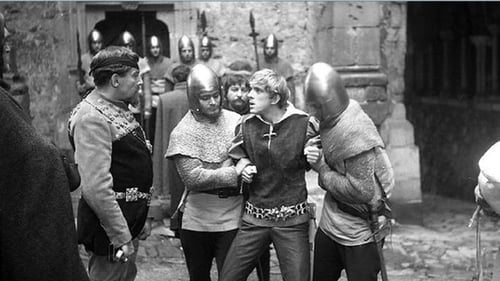
Editor
The young Prince Charles (Jaromír Hanzlík), the future King of his country Charles IV, is being educated at the French court in the company of his fiancée Blanche (Daniela Kolárová). One day he receives a summons from his father John of Luxembourg (Milos Kopecký) in Italy. He leaves for Italy accompanied by a deputation from Bohemia. On the way the prince's company fights a battle with armed Milanese against heavy odds. Thanks to Charles's perspicacity, the prince's almost naked soldiers win through. In Lucca in Italy Charles joins his father, and here he experiences an amorous adventure and escapes from the traps laid by the Italian rebels.

Editor
Prague - mystical city. It was here in the Middle Ages, alchemists and magicians gathered. Rumor has it that the house of Prague hide secret obtain the philosopher's stone, and complex multi-level labyrinth of underground tunnels and cellars keep many unsolved mysteries and untold treasures. Prague just full of ghosts and phantoms. Let us slightly lift the veil that hides the secrets and little to satisfy your curiosity, get acquainted with some legends of Prague.

Editor
Ordinary man making his dirty actions in the small town and his coming to the right side.

Editor

Editor

Editor

Editor

Editor

Editor
Honza Vavrinec (Rudolf Hrusínský) works in the investment department of a large office. One day he gets involved in the case of an unjustly convicted worker who mistakenly considers him a parliamentary deputy. Honza as a "deputy" interferes in the case and helps the worker. Encouraged by the success and possibly also out of love for the beautiful secretary Svatava (Blanka Bohdanová), the then shy and fearful Honza stands up for the chief of the department, Hofmánek (Ladislav Pesek), who has been removed from his position.

Editor
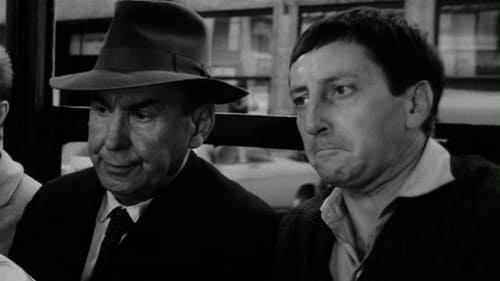
Editor
A man boards on a tram together with a naked boy. Somebody has stolen the boy's clothes when he was out bathing, leaving him with not even change for the tram. The man has taken care of him and is taking him home. At first nobody notices them but as soon as the people realize they are seeing something out of the ordinary they begin to react to the situation. Some are content with the simple explanation as to why the boy is naked. Others are agitated, for they see the whole situation as something unseemly. An ordinary incident, which might have been passed over in silence, results in a heated argument that turns into a fight. More and more people join in the fight until the police are forced to intervene.

Editor
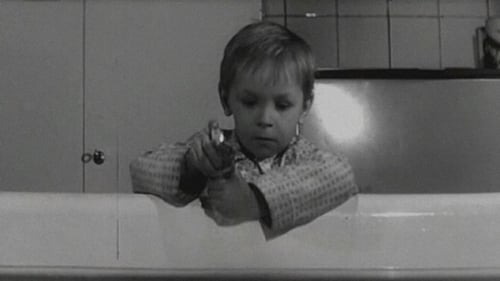
Editor
Three small short stories, each of which was created by one of the famous Czechoslovak filmmakers of children's films: Magdalena, Fraud and Karp.

Editor
At the end of May 1918, released prisoners return to the Rumburk garrison from Russian captivity, hoping that the war is over for them. The only thing they want is to get their withheld ...

Editor

Editor

Editor

Editor

Editor
A film in five episodes, all based on an attempt to show the life of young people today, their feelings and relationships, their behaviour in public and private life.

Editor

Editor

Editor

Editor

Editor
During his work assignment in Tamani Kingdom, Czech worker Lojza saves a local man from dying in the desert. Two years later, it turns out the saved man was also the Taman king; and he has decided to name Lojza, a communist, his royal heir.

Editor

Editor

Editor

Editor

Editor

Editor
An upholsterer who is preparing a rocket for takeoff accidentally jettisons himself into space and returns to Earth 500 years later with an alien companion who wishes to learn more about the human race.

Editor
Based on a novel by Maria Majerova, this well-photographed but routine romantic drama is directed and co-scripted by Vaclav Krska. Set in a more old-fashioned time, the story centers around Lenka (Suzana Fisarskova), a young woman with a domineering, psychologically abusive father. When Lenka falls in love she suffers the ultimate injustice when her father and her family forbid her to marry the man. They see no advantage in such a union and want her to marry a wealthy local landowner instead, for obvious reasons. But Lenka is not as submissive as they think and she runs away to the city to look for the man she loves -- only to find a serious problem, though a surmountable one, is waiting for her.
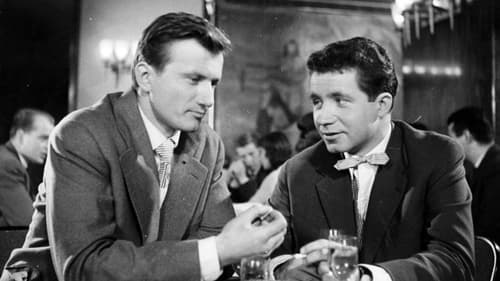
Editor
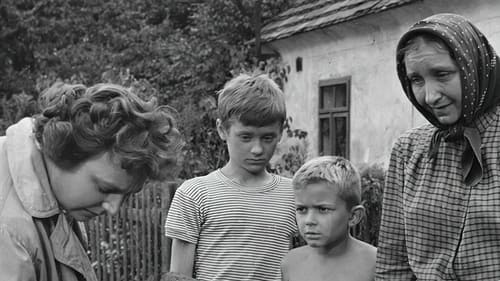
Editor

Editor
In a wooden hut used as a canvassing center, members of a children's puppet-theatre group are rehearsing for a production about a journey to the Moon. The goings-on inside the hut and outside are being closely followed by amateur detective Pepik Barnabás. He, however, is the first to be under suspicion when a trunk containing puppets goes missing. The children follow him but, when they catch up with him, they discover he hasn't got it. Pepík offers to help them in their search.

Editor

Editor

Editor

Editor
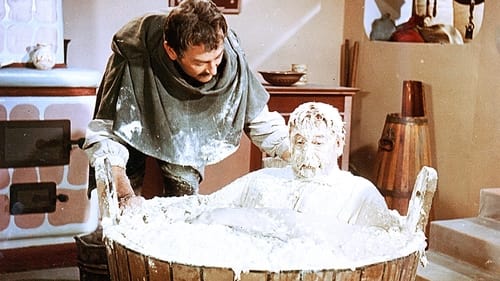
Editor

Editor
Czechoslovakian film.

Editor
A Czech fairy tale about a princess named Lada who runs away from home in a mouse fur disguise in order to escape an unwanted and forced marriage.

Editor
Czechoslovakian crime film

Editor
Czech comedy fantasy directed by Jiri Krejcik et al.

Editor
Concert master Karel Mašek is a drunk, as well as engineer Danda and other regular guests of the pub U Kroců. Mašek returns from the pub in the morning and promises the woman that he will stop drinking. But he failed again, and the orchestra players refuse to play with him. Danda returns home without a bag and goes to Krocs again in the morning, even though he has an important job at work. He has been degraded to subordinate job position, but he refused to admit it at home.

Editor

Editor
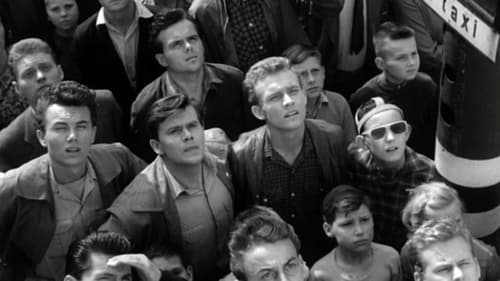
Editor
Explores young adults' fears of being conscripted by the communist government into working outside of Prague, a relative oasis of creativity and freedom of thought. From an early script by Milos Forman.

Editor

Editor
A spring is hidden in the Iron Mountain but the people of Arzen cannot get to it and they are suffering from thirst.

Editor

Editor

Editor
Second half of the 19th century. In a small town in South Bohemia, fifth-former Jan Ratkin is living through the confusions of first love together with his classmates.

Editor

Editor
Dalibor is a 1956 Czech film of the opera of the same name by Bedřich Smetana.[1] Directed by Václav Krška, the film was entered into the 1956 Cannes Film Festival.

Editor

Editor
Venice Film Festival 1955

Editor
Orphan Jirka lives alone with his grandfather by the river. He spends all his free time by the water and does not grow up with the other children. His biggest dream is to catch a big pike, which he knows that he can't do without friends. ► International Film Festival of Documentary and Experimental Films Montevideo - 1956 - 1st Main Prize (Distributor's Official Text)

Editor

Editor
Dog's Heads (Czech: Psohlavci) is a 1955 Czech drama film directed by Martin Frič, based on the novel of the same name by Alois Jirásek. It was entered into the 1955 Cannes Film Festival.

Editor

Editor

Editor

Editor

Editor

Editor

Editor
Early Days follows the early life of famous Czech writer Alois Jirásek. Jirásek had already developed his own view of the history of the Czech nation while he was at grammar school in Broumov. When he becomes the supply teach in Litomyšl, he has already written his first book and a number of poems. The local dignitaries await the arrival of the young writer in excited anticipation. Jirásek, however, is sickened by the empty patriotism from the depths of his soul and soon becomes disagreeable to the notables. The district sheriff tries to remove Jirásek from the school and drive him out of town. Unable to do this, the sheriff appoints a pro-Austrian headmaster who attempts to sabotage Jirásek. The students stand behind Jirásek , however, and discontent is not only felt in Litomyšl but throughout Bohemia.

Editor

Editor

Editor
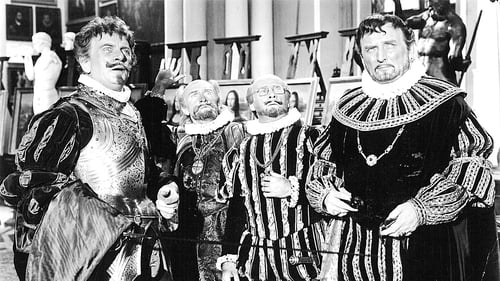
Editor
The Emperor's mismanagement of his country is provoking some in his court to plot to overthrow him. He feels successful, at least, when he discovers the legendary Golem, which he believes can protect him and even cure his imaginary illnesses but, when he disappears while on a bender, his kindly baker, who looks just like him, is mistaken for him, and begins to put things in order. However, the conspirators, not to be outdone, determine to bring the Golem back to life to do their bidding.

Editor

Editor

Editor

Editor
Czech drama film.
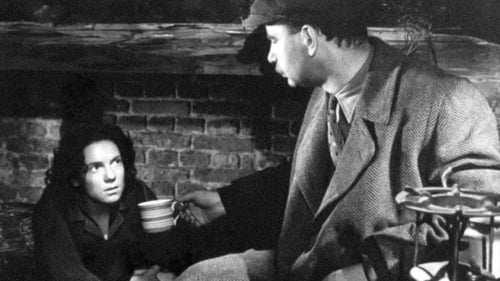
Editor
The Trap (Czech: Past) is a 1950 Czech drama film directed by Martin Frič. It was entered into the 1951 Cannes Film Festival.

Editor

Editor

Editor

Editor
Year of the Revolution 1848

Editor

Editor

Editor

Editor
Czechoslovak drama film about soldiers returning from World War II

Editor
This drama from the times of Slovak National Uprising is situated in a small Slovak village. It is the tragical story of a widow and her four sons who fight alongside the partisans against the German occupants.

Editor
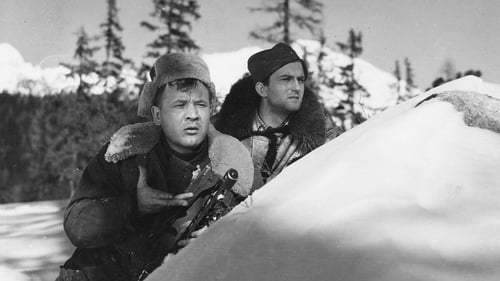
Editor
A young doctor and a group of injured are hiding in an underground shelter and are liberated by Soviet soldiers.

Editor

Editor

Editor
People are afraid of the usurer Chazaj and are convinced that he is the bearer of evil. One day Chazaj pays a visit to the poor artist Simon Jordán and asks him to paint his portrait. Simon agrees but as he progresses with the work his mind conjures up terrible thoughts and in the end he commits suicide. The portrait looks lifelike and Chazaj is content with the results. After Chazaj's death the picture changes hands and brings misfortune to all who own it. The last victim is the young painter Roman who buys Chazaj's portrait in a bazaar. He finds a treasure in the frame and begins to live well off it. The comfortable life suits him so well that he rejects his original artistic aims and becomes a painter of fashionable kitsch.

Editor

Editor
Five crime stories connected by the narration of police superintendent Bartosek.

Editor
A drama about Slovaks who emigrated before WW I. It is focused on the life of Ondrej Muranica. He emigrates to America because of the hard life that is partly caused by Hungarian landowners. His dreams and hopes for a happier life are destroyed by a disaster in the mines where he works. Ondrej is declared missing.Years later he returns to his home country and finds out his wife married his best friend.
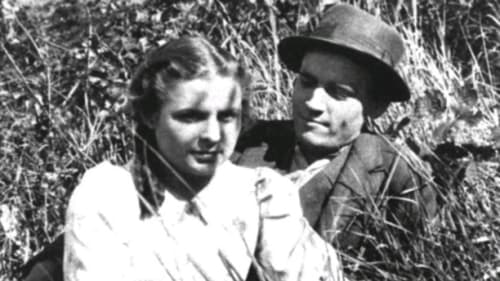
Editor
In late 19th century Czech-speaking Bohemia, oppressed workers at German-owned mines and foundries revolt against their harsh working conditions. Made shortly after World War II as Czechoslovakia was falling to communism, the film resonates in Czech resentment of the German occupation.
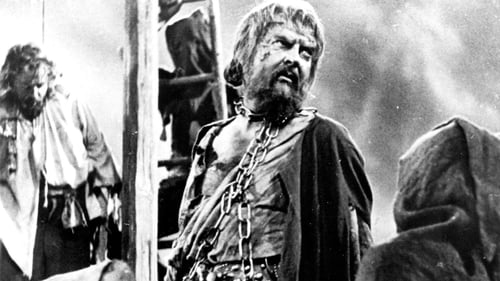
Editor
Czech history movie.

Editor

Editor
After an attack against the guard of the Third Reich, Nazi repression intensifies, and the Czechoslovakian resistance's organized sabotage in an aircraft factory leads to Gestapo shootings.

Editor

Editor
Inspector Cadek from the 13th police station should keep an eye on the released safe-cracker nicknamed The Cat. He rightly suspects that Cat will go and pick up his last loot which the police didn't manage to find and that he will want revenge on Karta who helped get him behind bars. At the hospital, Cat's ex-lover Fróny hopelessly falls for doctor Chrudimský and decides to start a new life. She still refuses to help the inspector in his search for The Cat and Karta.

Editor
Leopold Kohák married a rich widow a long time ago and now has nothing to do compared to his energetic wife. He's growing old and troubled by the fact that he betrayed his first love Emča and his beloved river Sázava where he spent his childhood and youth. A visit from an old friend Lebeda brings it all back to him. After a nervous breakdown Leopold secretly visits his home instead of going to the spa. A wandering tramp suggest Leopold should bathe in the magical waters of the Sázava, and slowly his youth returns to him.

Editor

Editor

Editor

Editor

Editor

Editor

Editor

Editor

Editor

Editor

Editor
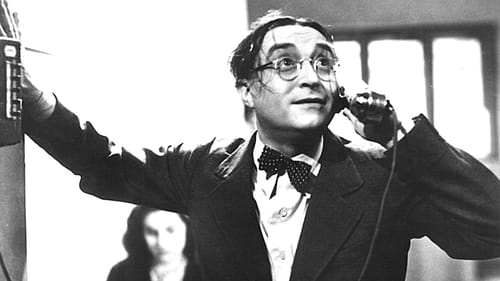
Editor

Editor

Editor
A writer of pulp crime novels is drawn into a series of real crimes. This film was one of the first Czech attempts on a genre parody.

Editor
Rudolf Bartoš, the owner of a farm, quarry and factory, is extremely rich, however, he is unapproachable and irritable, and the dread of his employees. One day he falls down a steep slope by a river and hurts himself. The quarryman Fábera finds him groaning in pain and takes him to his cottage.

Editor
Rich spinster Berta celebrates her sixtieth birthday. Her faithful admirer Dr. Jelinek proposes. But Berta can not forget Edward, the great love of her life, and refuses the offer…

Editor

Editor

Editor
Venice Film Festival 1941

Editor

Editor

Editor

Editor
Ríša, a student of law, neglects his studies in favour of parties and pranks. His angry father refuses to continue helping him out of his debts. Ríša, however, is not entirely beyond hope. He decides to go and stay for a while with his uncle, a priest, who lives in Moravia, in order to prepare for his exams. He meets Helenka, the timid daughter of the local gamekeeper, at a village ball and is enchanted by her. The days pass and their idyllic relationship begins to tire Ríša. He begins to tell Helenka about his former debauched life the about the broken hearts of beautiful women. Helenka is hurt and refuses to see Ríša anymore. His uncle, the priest, is incensed at his behaviour and orders his nephew out of the house. Ríša tries desperately to find Helenka so he can make it up to her.

Editor

Editor

Editor
Fifty years old Baron von Fibberg lives at The Fibberg Castle with his wife Olga and daughter Charley. Besides the delight in hunting, Baron is very enthusiastic about truth. Although he can't withstand any falsehood of others, he keeps his own intimate secrets from his wife. Charley seems to be an innocent girl at first glance, but she has a little secret too. She fell in love with a young fop Ernest Benda and married him in secret. Her only concern is the way, how to let her strict father know about the marriage. Together with her husband they prepare a plan how to do it, but it turns out to be a catastrophe for the whole family.

Editor

Editor

Editor

Editor

Editor
The title refers to the office of records in the basement of a large company... sort of the place where a troublesome employee may be dumped in a dead end job. If fact, the story is a simple romantic comedy, with Burian as the kindly old stick-in-the-mud who helps the young man to sort out his romance with the daughter of the company's owner.

Editor
Venice Film Festival 1940

Editor

Editor
Eva's aunt is jealous of her neighbor's excellent roses and wants to know the secret. To help auntie out Eva applies for secretarial work at the neighbor's house in order to find out the formula. Things get complicated when it turns out that Eva's brother is in love with the daughter of the house and also wants to get in there under false pretenses.

Editor
Small stories from a grammar school.Děj je poskládán z celé řady epizod, které během jednoho školního roku prožívají septimáni. Jejich pojítkem je příběh profesora přírodopisu Matulky, starého mládence a věčného suplenta, který si z přehnané svědomitosti ani v pokročilém věku netroufá složit tu poslední státnici. Stále se mu totiž zdá, že ještě něco nezná, a tak by snad bez diplomu odešel i do penze. Naštěstí jsou tu jeho studenti, kteří sice dávají dobráckému učiteli pěkně zabrat, ale po nezodpovědné klukovině s bouchacími kuličkami, kdy se Matulkovi udělá špatně, se kluci vzpamatují a s pomocí mladého profesora, někdejšího Matulkova žáka, připraví šlechetnou lest. Pod záminkou nákupu k doplnění školní entymologické sbírky je vylákán ke zkoušce u laskavého profesora Vondráka. (oficiální text distributora)

Editor

Editor

Editor
Alois Novák (Oldrich Nový), a minor clerk in a travel agency and the husband of a dowdy housewife Marenka (Natasa Gollová), lives a run-of-the-mill, dull life. In his soul, however, there resides an inextinguishable desire for adventure. And so once a month he poses as a playboy. As the mysterious and wealthy Mr. Kristian he goes to the exclusive Orient Bar where he does not skimp on generous tips and where he platonic-ally seduces beautiful and elegant women. In the salon he speaks of love and the magnificence of exotic lands, which he has supposedly come to know on his wanderings abroad. In reality he has read all of this in the travel agency's brochures.

Editor
When the yacht of her former lover Mario Tudor arrives in Split, widowed Countess de Milesi, plagued by financial troubles, is hell-bent on selling him a fake copy of an expensive painting.

Editor
Venice Film Festival 1939

Editor

Editor

Editor
U pokladny stál... is a Czech comedy film. It was released in 1939.

Editor

Editor

Editor

Editor

Editor

Editor

Editor

Editor
Seventh form pupils at a grammar school in Přívlaky are preparing for a secondary school sports competition. Class creep Krhounek gives the class teacher Lejsal a copy of the seventh form’s magazine Roar. Most of the teachers insist on severe punishing the culprit. The author does not own up and consequently the whole class is punished by being banned from taking part in the schools competition. The most gifted pupil, Benetka, rather sharply criticises the school in a homework essay on a subject of his choice. The strict Czech language teacher is convinced Benetka is the author of the school magazine. Benetka denies the charge but his expulsion from school is proposed anyway on account the views he expounded in his essay. Eventually, Boukal, the author of the school magazine comes forward and admits to writing it. The pupils are allowed to take part in the contest and thanks to Benetka they win. In the meantime however the teachers vote to expell him.

Editor

Editor

Editor

Editor
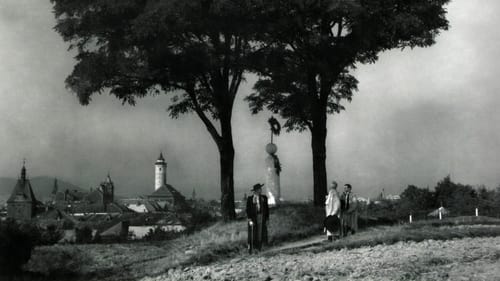
Editor

Editor

Editor

Editor
A student rebellion precedes revolutionary events in Prague.

Editor
The doomed love of a city girl caught in the vise of poverty is detailed in Vavra’s fluid, romantic work, one of the most elegant creations of the Czech Modernist era... The film lingers over its characters’ habitats and haunts, finding psychological truths in what each owns or desires, and countering every Hollywood-ready scene of gleaming restaurants and dazzling penthouses with realist moments of employment lines and crammed flats. Vavra’s classical camerawork and aura of romantic defeatism give Virginity a force comparable to the master of this genre, Hollywood’s Frank Borzage. (BAM/PFA)

Editor

Editor

Editor

Editor

Editor
One of the few European films of the 30s to criticize the Nazis, even if they couldn't be directly named due to censorship: Gangsters with gray hats stir up trouble in what is obviously the Sudetenland.

Editor

Editor
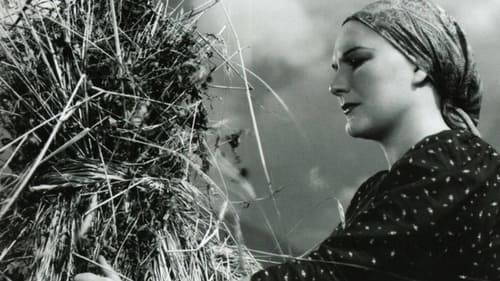
Editor

Editor
Professor Karas is widely known as enthusiastic propagator of the motto "Morality Above All Else". He guides his students as well as his own family to live a morally decent life. One day he has an unexpected visit. It's his illegitimate daughter Vera, who is proof of his thoughtless youth. Mr. Karas know that she can ruin his image, thus he decides to keep her a secret and asks her to leave. Instead of leaving she takes a position of a governess in his own family without letting him know. Mr. Karas realizes that he must reveal the truth sooner or later, but he doesn't have enough courage to do so. As he postpones it, he is more and more scared to come to his own home.

Editor
Venice Film Festival 1937

Editor
Slightly ironic comedy of wretches, who come to understand the rich and are able to accept charity, and also about how love and work prevail over the factory owner's son.
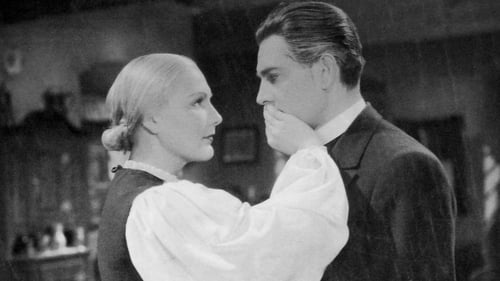
Editor

Editor

Editor

Editor

Editor

Editor

Editor

Editor

Editor

Editor

Editor

Editor

Editor
Venice Film Festival 1935

Editor

Editor

Editor

Editor















































